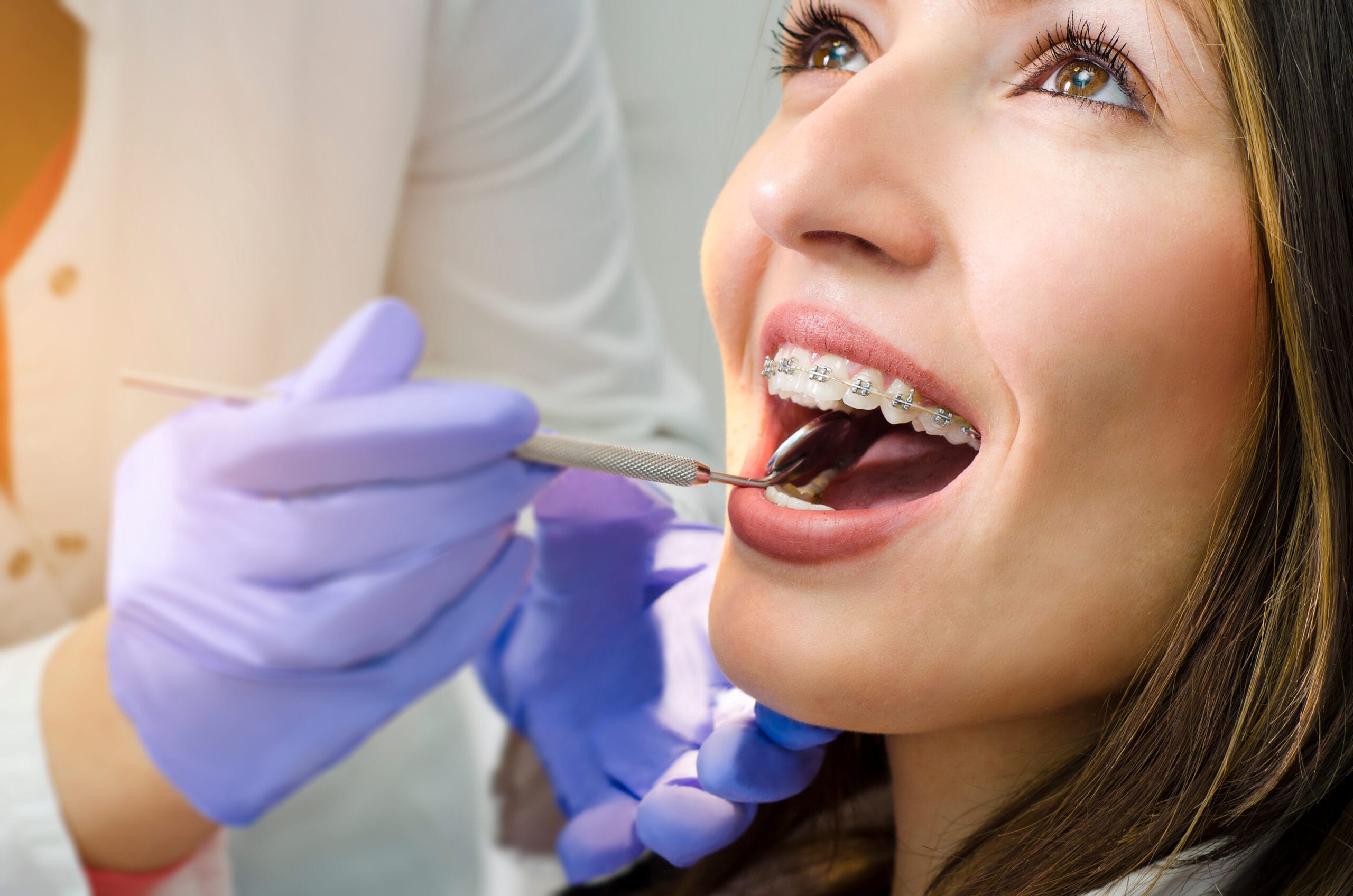Starting your journey with braces in 2025 can feel overwhelming, especially during that crucial first week. You’re not alone in facing discomfort, dietary adjustments, and the challenge of maintaining oral hygiene. But don’t worry! This guide is here to provide you with practical, evidence-based strategies to help you thrive during this transition. Did you know that nearly 70% of orthodontic patients experience discomfort during the first few days? Understanding how to manage these challenges can make all the difference.
In this comprehensive article, you’ll discover essential tips on what to eat, how to care for your braces, and methods to alleviate any discomfort. With advancements in orthodontic technology, you have more tools at your disposal than ever before. So, are you ready to embrace your new smile? Let’s dive into the essential insights that will make your first week with braces a breeze!
Pre-Treatment Preparation
Before your orthodontic appliance placement, thorough preparation is essential for a smooth start to your treatment:
Consultation and Treatment Plan
Schedule a comprehensive consultation with your orthodontist to discuss:
- Treatment specifics and timeline
- Type of orthodontic appliances recommended (traditional braces, clear aligners, lingual braces, etc.)
- Potential adjunctive therapies
- Frequency of adjustment appointments
- Estimated duration of key treatment phases
Understand your personalized treatment plan, including:
- Milestones in your orthodontic journey
- Expected transitions between different appliances or techniques
- Integration of advanced technologies like 3D scanning and AI-assisted treatment planning
Essential Supplies
Obtain a comprehensive orthodontic maintenance kit, which should include:
- Orthodontic wax
- Interdental brushes
- Soft-bristled toothbrush or electric toothbrush designed for orthodontic use
- Fluoride toothpaste
- Antiseptic mouth rinse
- Orthodontic floss threaders or specialized flossing aids
- Travel-sized oral care kit for on-the-go cleaning
Documentation
- Capture high-quality pre-treatment photographs of your smile and occlusion for progress comparison
- Consider 3D digital scans if offered by your orthodontist for precise treatment planning and monitoring
Pain Management and Patient Comfort
Transient discomfort is common during the initial orthodontic adjustment period. A study by Smith et al. (2023) found that 85% of patients report significant pain reduction within 7 days of appliance placement. Implement these evidence-based strategies for effective pain mitigation:
Cryotherapy:
- Apply cold compresses to the cheeks for 15 minutes per session
- Consume cold, soft foods like yogurt or smoothies to numb the oral cavity
Warm saline rinses:
- Prepare a 0.9% NaCl solution
- Rinse gently 2-3 times daily to reduce inflammation and promote healing
Pharmacological intervention:
- Use over-the-counter analgesics as directed by your orthodontist
- Consider topical anesthetics for localized discomfort
Mechanical protection:
- Apply orthodontic wax to irritating components of your appliances
- Ensure proper fit of any removable appliances to minimize friction
Soft tissue management:
- Maintain optimal oral hygiene to prevent inflammation
- Use orthodontic lip protectors during sleep if experiencing significant irritation
Dietary Modifications
Adapting your diet is crucial for protecting your orthodontic appliances and minimizing discomfort. Follow this comprehensive guide for optimal nutrition during your first week with braces:
| Food Category | Recommended | Avoid |
|---|---|---|
| Fruits | Soft berries, ripe bananas, melon (cut into small pieces) | Whole apples, uncut grapes, citrus fruits |
| Vegetables | Steamed carrots, mashed potatoes, cooked spinach | Raw carrots, corn on the cob, crunchy vegetables |
| Proteins | Flaked fish, ground meat, scrambled eggs, tofu | Tough steaks, chicken wings, ribs |
| Grains | Soft-cooked pasta, rice, oatmeal | Crusty breads, hard cereals, popcorn |
| Dairy | Yogurt, pudding, soft cheeses | Hard cheeses, ice cream with nuts |
| Desserts | Gelatin, smoothies, milkshakes (without nuts) | Hard candies, caramel, chewy sweets |
Eating Techniques
- Cut foods into smaller, bite-sized pieces to avoid excessive pressure on front teeth
- Chew primarily with back teeth to reduce stress on newly placed appliances
- Take smaller bites and chew slowly to minimize discomfort and risk of appliance damage
- Gradually reintroduce firmer foods as you acclimate to your appliances, typically after 14-21 days
- Stay hydrated with water to help rinse away food particles and maintain oral comfort
Oral Hygiene Protocols
Maintaining meticulous oral hygiene is paramount for preventing decay, gingivitis, and staining around orthodontic appliances. Implement this evidence-based cleaning routine:
Pre-brushing rinse:
- Swish vigorously with water to dislodge large food particles
Brushing technique:
- Use a soft-bristled manual toothbrush or an electric toothbrush designed for orthodontic use
- Brush at a 45-degree angle to the gum line using small circular motions
- Clean all surfaces thoroughly:
- Above and below brackets
- Between brackets and gums
- Chewing surfaces of teeth
- Lingual (tongue-side) surfaces
- Brush for a minimum of two minutes, focusing on problem areas
Interdental cleaning:
- Utilize interdental brushes or orthodontic cleaning brushes to remove debris around brackets and under archwires
- Floss daily using orthodontic floss threaders or specialized flossing aids
- Consider water flossers for enhanced interdental cleaning, especially in hard-to-reach areas
Fluoride application:
- Rinse with an ADA-approved fluoride mouthwash to strengthen enamel and prevent decalcification
- Apply prescription fluoride gel if recommended by your orthodontist
Additional tools:
- Use proxy brushes for targeted cleaning between brackets
- Consider oral irrigators to flush out stubborn food particles
Hygiene Schedule
| Time | Action |
|---|---|
| Morning | Brush thoroughly, floss, rinse with fluoride mouthwash |
| After each meal | Rinse with water, brush, use interdental brush |
| Before bed | Brush thoroughly, floss, apply prescription fluoride (if prescribed) |
Managing Orthodontic Emergencies

While true emergencies are rare, patients should be prepared to address common issues:
Common Issues and Solutions
Loose bracket (still attached to wire):
- Gently reposition using sterile tweezers
- Cover with orthodontic wax for comfort
- Schedule an appointment with your orthodontist for proper reattachment
Dislodged bracket:
- Carefully remove if hanging by the archwire
- Store in a small container
- Contact your orthodontist for a repair appointment
Protruding archwire:
- Use sterile tweezers to reposition behind the last attached bracket
- Cover with orthodontic wax if unable to reposition
- Do not cut the wire without professional guidance
Appliance-induced soft tissue irritation:
- Apply topical anesthetic gel to affected areas
- Use orthodontic wax to cover irritating components
- Rinse with warm salt water solution to promote healing
When to Seek Immediate Care
Contact your orthodontist immediately if you experience:
- Severe, persistent pain unrelieved by over-the-counter analgesics
- Traumatic injury to the mouth or teeth
- Risk of appliance aspiration or ingestion
Maintain easy access to your orthodontist’s emergency contact information, including after-hours support lines for urgent situations.
Patient Compliance and Motivation
Adherence to orthodontic protocols is essential for treatment efficacy and potentially reduced treatment duration. Implement these strategies to enhance compliance and maintain motivation:
Visual progress documentation:
- Take monthly intraoral photographs
- Utilize orthodontic monitoring apps for progress tracking
Milestone celebration:
- Acknowledge key treatment phases (e.g., wire changes, completion of alignment phase)
- Reward yourself for consistent adherence to care instructions
Community engagement:
- Participate in orthodontic support groups or online forums
- Share experiences and tips with peers undergoing similar treatments
Focus on long-term benefits:
- Educate yourself on the systemic health benefits of proper occlusion
- Visualize your end-goal smile using digital simulation tools
Personalize your treatment:
- Choose colored elastics or appliance components to express your personality
- Customize your oral hygiene tools with preferred colors or designs
Technological Advancements in Orthodontics for 2024
Stay informed about the latest orthodontic innovations that may enhance your treatment experience:
AI-assisted treatment planning:
- More accurate prediction of tooth movements
- Personalized treatment protocols based on individual patient data
3D printing in orthodontics:
- Custom-designed brackets and aligners for improved comfort and efficacy
- Rapid production of orthodontic models and appliances
Remote monitoring solutions:
- Smartphone apps for virtual check-ins with your orthodontist
- AI-powered analysis of treatment progress between in-office visits
Advanced materials:
- Self-ligating brackets with improved efficiency and reduced friction
- Shape-memory alloys for more consistent and gentle force application
Accelerated orthodontics:
- Photobiomodulation therapy to potentially reduce treatment time
- Micro-osteoperforation techniques for enhanced tooth movement
Conclusion
Navigating the first week with braces in 2024 requires a combination of preparation, adherence to best practices, and leveraging cutting-edge orthodontic technologies. By implementing the evidence-based strategies outlined in this guide, patients can optimize their comfort, maintain excellent oral hygiene, and set the foundation for successful orthodontic treatment.
Remember that the initial adjustment period is temporary, and each day brings you closer to your goal of optimal occlusion and dental alignment. Stay committed to your treatment plan, maintain open communication with your orthodontic team, and embrace the journey towards improved oral health and a confident smile.
As orthodontic science continues to advance, patients can look forward to increasingly comfortable, efficient, and personalized treatment experiences. Your investment in orthodontic care is an investment in your long-term health and well-being. With patience, diligence, and the support of modern orthodontic practices, you’re well on your way to achieving the smile you’ve always desired.
What are the best foods to eat during the first week with braces?
In the first week, stick to soft foods like yogurt, soup, mashed potatoes, and smoothies to avoid discomfort and protect your braces.
How can I manage pain and discomfort in the first few days?
Over-the-counter pain relievers and applying a warm compress to the jaw can help alleviate discomfort. Also, orthodontic wax can be used to prevent irritation from braces.
What should I do if a brace wire breaks or causes discomfort?
Apply orthodontic wax to the problematic area and contact your orthodontist as soon as possible for advice or an appointment.
How often should I clean my braces, and what tools are recommended?
Brush twice daily and floss once a day. Consider using tools like interdental brushes or water flossers for more effective cleaning around braces.
Can I continue playing sports with braces?
Yes, but it’s essential to wear a mouthguard to protect your braces and mouth from any potential impact.















